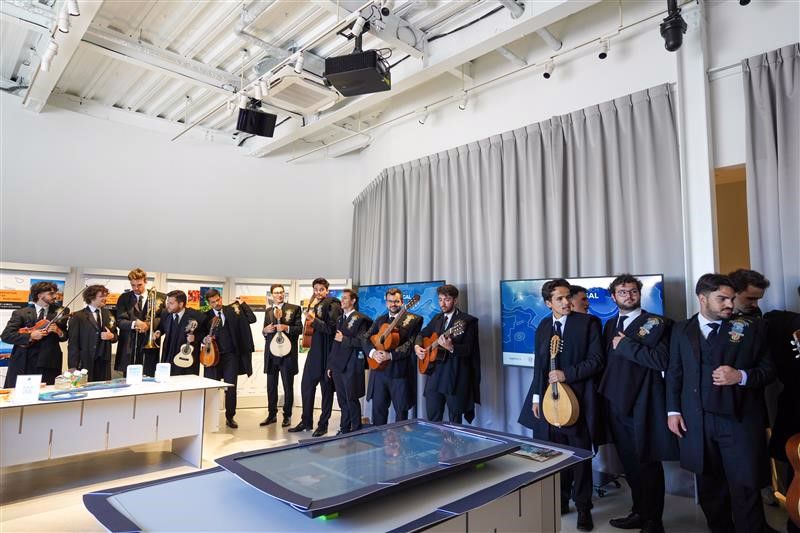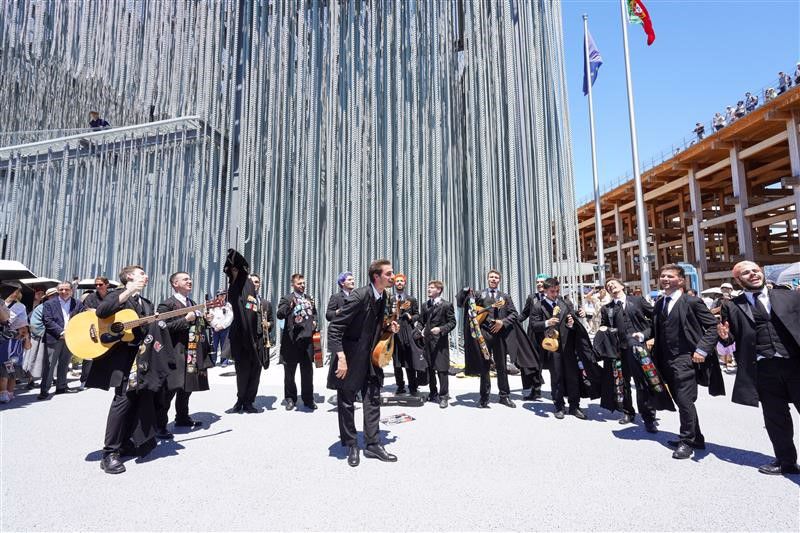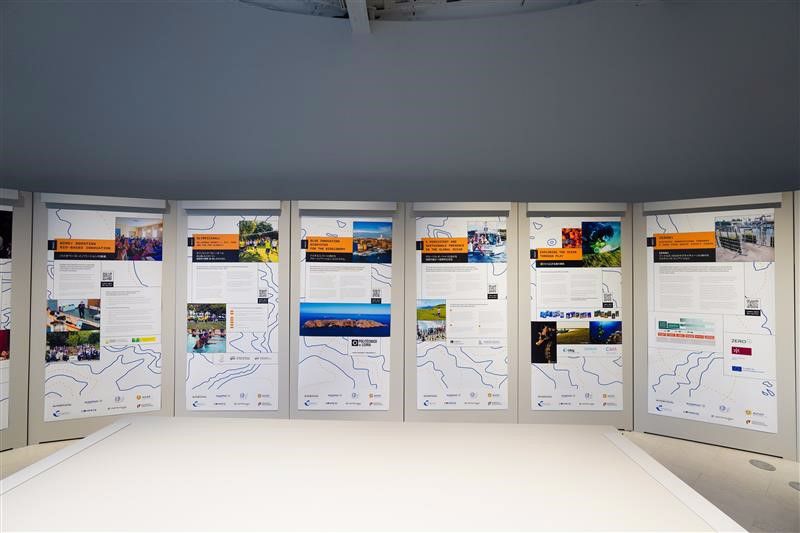From 23 to 25 July, the Portugal Pavilion hosted the initiative Study & Research in Portugal, promoted by the Portuguese Erasmus+ National Agency for Education and Training, as part of Expo 2025 Osaka’s Thematic Week Learning and Playing.
The initiative positioned Portuguese higher education as a trusted international partner, showcasing innovative projects that reflect the strong commitment of Portuguese institutions to global challenges – from sustainability to education, from science to digital inclusion.
In an interactive and participatory environment, hundreds of daily visitors explored projects related to pedagogical innovation, robotics, art, science, and of course, the ocean – in line with the theme of the Portugal Pavilion: “Ocean, the Blue Dialogue”.
The initiative positioned Portuguese higher education as a trusted international partner, showcasing innovative projects that reflect the strong commitment of Portuguese institutions to global challenges – from sustainability to education, from science to digital inclusion.
In an interactive and participatory environment, hundreds of daily visitors explored projects related to pedagogical innovation, robotics, art, science, and of course, the ocean – in line with the theme of the Portugal Pavilion: “Ocean, the Blue Dialogue”.

Institutions such as the Faculty of Engineering of the University of Porto, the University of Algarve, Polytechnic Institute of Leiria, University of Minho, Polytechnic Institute of Portalegre, Polytechnic Institute of Viana do Castelo, and Universidade Aberta presented solutions that combine knowledge, creativity and sustainability. The Inov Contacto programme, promoted by AICEP, was also present, highlighting the link between young talent and internationalisation.
The programme also included moments of celebration of Portuguese academic culture: the Orfeão Universitário do Porto, and the Tuna Universitária do Porto delighted visitors with spontaneous, lively performances outside the pavilion, gathering crowds around the contagious energy of Portuguese traditional academic music.
The programme also included moments of celebration of Portuguese academic culture: the Orfeão Universitário do Porto, and the Tuna Universitária do Porto delighted visitors with spontaneous, lively performances outside the pavilion, gathering crowds around the contagious energy of Portuguese traditional academic music.





